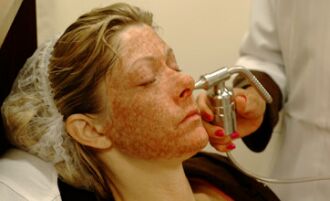Most men are prone to the condition known as pattern hair loss, also known as androgenic alopecia. It happens when hormones bind to the hair follicles and cause them to shrink. It leads to a receding hairline and the characteristic horseshoe shape around the top of the head. Although reducing alcohol consumption, smoking, and late nights can help to prevent damage and encourage hair growth, this won’t reverse genetic male pattern baldness. Here are some reasons why that is.
Alopecia Areata
Hair loss can occur all over the body, but it is most common on the head. The condition is called alopecia areata and affects both men and women. It usually begins in childhood or adolescence. What causes alopecia areata is unknown, but it is genetic in origin. The condition can cause serious emotional distress and low self-esteem, especially in children. Adults who experience it may also experience despair and social isolation. Luckily, there are treatment options available offered by a hair transplant doctor NYC. People with alopecia areata can get information and support from the National Organization for Rare Disorders. People can camouflage their bald spots with special hairstyling techniques and hats or use quality human hair prostheses. People with alopecia areata can also benefit from psychotherapy and counseling.
Treatments
If your hair loss is not due to underlying health conditions, it is generally best not to treat it and accept that you will be bald. However, if you feel that the situation is affecting your confidence, several options are available. Wigs or hairpieces can cover bald patches and are relatively cheap and versatile. Instead of temporary hair like wigs, the FUT hair transplant New York City offers permanent hair. Scientists can’t say when men began to go bald, but they have found that it was a natural part of evolution. It is thought that baldness made men less attractive to predators and helped them avoid being killed. Also, balding around the temples and vertex allows more skin to absorb vitamin D, which is good for the heart.
Hormones
Men lose hair because of a combination of factors, including genetics, stress, diet, lifestyle choices and certain medications. Hormones are chemicals that act as messengers to coordinate bodily functions, such as growth and development, blood pressure and sugar regulation, fluid (water) balance and body temperature.
Testosterone is a key factor in balding, but only the testosterone not bound to proteins (‘free testosterone’) can affect your hair follicles. Free testosterone gets converted to dihydrotestosterone in the scalp, which causes hair loss. Male pattern baldness is a natural component of aging and has no evolutionary benefit. However, it can be distressing for some people as it can cause a receding hairline or bald patches. With graft survival rates of 90%, FUE hair transplant New York City can be just as successful as the more established FUT technique. The procedure’s success rate may reach 100% when using robotic FUE technology. The success of the process depends on the doctor doing it and their expertise, knowledge, and experience.
Telogen Effluvium
Hair follicles spend two to four years in the active growing (anagen) phase and rest for about four months in the telogen phase. In normal scalp health, anagen and telogen hairs make up 85 to 95% of the total head hair volume. In telogen effluvium, the ratio of anagen to telogen hair is disrupted. Diffuse hair loss usually occurs a few months after you experience significant physical or emotional stress. The good news is that your hair often grows back once the cause of stress is gone. It is a common condition that can affect men and women, but it’s more likely to occur in women during pregnancy or menopause. Certain medications, including beta-blockers, calcium channel blockers, antidepressants and retinoids can also trigger it.
Stress
Considering that women juggle family, work and a host of other things across their lifespan, it’s no wonder that they experience stress in high numbers. Women who suffer from severe or chronic stress can experience telogen effluvium, which leads to temporary hair loss. It can also cause alopecia areata and even trichotillomania, where people pull at their hair to make it come back.
In evolutionary terms, baldness has no advantage. Males jettison any attribute that does not improve their survival to invest that energy into other features that do. Ultimately, this is all about how we live our lives and choices. Hair doesn’t have to be important as long as we are healthy. We all deserve to be happy.
Article Submitted By Community Writer




